Madisyn Willis had only just started her new job with the Atlanta Music Project, when one student in particular caused her to take a closer look — or more accurately — listen.
From the first moment that Madisyn met him, she could tell that this student fit the classic class-clown stereotype. He refused to take anything seriously, and it seemed like he was only attending class for the chance gratification of a laugh or two from his classmates.
But, week after week, Madisyn’s student continued to show up. What started as a weekly orchestra rehearsal turned into private lessons, more time practicing, and soon after that a legitimate passion.
Over the next three years, Madisyn’s student dedicated himself completely to the Atlanta Music Project, his Chamber orchestra ensemble, and his viola. Upon graduating from high school, he received a full-ride scholarship to Kennesaw State University to study music.
Why It’s Newsworthy: The Atlanta Music Project (AMP) is a nonprofit organization located in south Atlanta that provides expense-free music education and training opportunities to students from middle and high schools in underserved communities.Just seeing these kids and how they turn their lives around when they’re actually focusing on their own practice and learning how to practice… it’s very, very amazing to see,” Willis said.
“Right now, we have a 100% graduation rate. All of our kids have graduated high school,” affirmed Willis, the current marketing and development associate at AMP.
“I mean, we haven’t had quite that many seniors. I think it’s like 25 or 30. But you know, it’s 100% nonetheless,” Willis continued.
This number can be compared to the four-year graduation rate for students of Atlanta Public Schools, which was 80.3% in 2020, according to a report by the Georgia Department of Education (GADOE).
Lack of Access to Music Education in Marginalized Communities
Rebecca Atkins is an expert in the realm of music education. She taught middle and high school choir for 14 years before attending doctoral school, with the goal of training future music educators.
She works now as an associate professor of Music Education in the Hugh Hodgson School of Music at the University of Georgia.
Besides her work as a professor, she is also an active clinician, music adjudicator, performer and as well as a music education researcher.
Atkins explained that most of the obstacles that she’s witnessed within music education stem from a lack of access to the arts in general.
“So we have it in our schools, for sure. But even in our schools…they don’t have music every day. And I think it’s a scheduling issue trying to fit everything into a seven hour day. They’re likely to have a music class once a week for 35 minutes, especially in the young ages,” Atkins stated.
Atkins went on to explain that this downward sloping trend in instructional time in the arts and music comes as a result of public schools’ growing accountability and focus on standardized test scores.
“Our government uses assessments to help be accountable for funding. And it takes away from the opportunity for children to have access to lots of different things besides science, English, Math and social studies. So though our laws have made it where we’re supposed to have a more well-rounded education opportunity for children, there’s still a lot of barriers in actually getting that implemented,” she asserted.
The pressure for public schools to focus on and teach to what is measured by standardized tests has also “disproportionately affected access to the arts in a negative way for students from historically underserved communities,” according to a study by the National Endowment for the Arts.
The report found that “schools designated under No Child Left Behind as needing improvement and schools with higher percentages of minority students were more likely to experience decreases in time spent on arts education.”
And all kids should have access and can be musical if they have the opportunities to be around music,” Atkins adds.
The Atlanta Music Project’s Focus on Underserved Communities
The Atlanta Music Project was first established in 2010 and currently serves more than 300 students in the south Atlanta community, which includes students from a variety of schools throughout the Atlanta Public Schools (APS).
“With music programs, that’s the first program to get cut in these underserved communities. So basically, our AMP Center, we’re right in the middle of all that,” said Willis.
APS has one of the largest racial achievement gaps in the country, which reflects one of the largest racial income gaps in the country.
In 2019, across all schools in APS, the district average for scores on the Georgia Milestones standardized tests differed significantly by race, according to a report published by APS Insights that uses data collected by GADOE.
Willis explained that AMP aims to provide support and aid personal development, which is ultimately facilitated by their courses and musical instruction.
“We kind of want to provide a safe haven for the kids to come learn music, do their homework in these communities where a lot of music programs are going to be cut. Programs that are actually really good for character development,” Willis made clear.
Evaluating the Benefit of Increased Instruction in the Arts
A study conducted by the Brookings Institution’s Brown Center on Education Policy, “New Evidence of the benefits of Arts Education,” concluded that a substantial increase in arts educational experiences has explicit and quantitative impacts on students’ “academic, social, and emotional outcomes.”
Willis underlined that AMP’s core mission is to “help young people realize their possibilities through music.”
Learning a skill and really focusing on it is really great character development,” she emphasized.
In this study, the Brookings Institution collected data from a total of 42 public schools across the U.S. They obtained access to and analyzed “student-level demographics, attendance and disciplinary records, and test score achievement” in order to measure the impact of increased instruction in arts education.
Through a random lottery process, half of the participating public schools received “substantial influxes of funding earmarked to provide students with a vast array of arts educational experiences throughout the school year.” The other half of schools served as the study’s control group and received no auxiliary funding for their existing arts and music programs.
The study found that, relative to students assigned to the control group, students within the treatment schools who had experienced a significantly higher amount of education within the arts “experienced a 3.6% reduction in disciplinary infractions, an improvement of 13% of a standard deviation in standardized writing scores, and an increase of 8% of a standard deviation in their compassion for others.” They also found that this increase in arts learning “positively and significantly affects students’ school engagement, college aspirations, and their inclinations to draw upon works of art as a means for empathizing with others,” as well as causing students to consider their schoolwork more enjoyable and attempt to solve problems more creatively.
“Music is all around us… it’s just a part of who we are as humans. And it’s a beautiful thing, but also teaches a lot of skills, teamwork and doing something beautiful and being proud about it,” noted Atkins.
Learning how to really master an art is really something that we hope these kids, whether from underprivileged communities or not, can take with them beyond high school,” willis said.
Atlanta Music Project’s Efforts to Make Music Education Accessible
AMP offers music classes that are split between three different branches, which are made up of an Orchestral branch, a Choral branch and AMP Academy, a private lesson program.
Both large-group rehearsals and private lessons are held up weekly over the course of an 11-week semester, with classes taking place up to four days per week, for two hours each day.
Admittance is competitive and for AMP’s high school programming, students are required to audition for entry.
AMP also holds a preparatory choral and a preparatory orchestral program, which both have free tuition and do not require any auditions or prior experience from students. For both of these programs, rehearsals meet for an hour, once a week, for 11 weeks.
Willis said although the program’s curriculum and the music taught varies significantly by semester, AMP’s approach primarily focuses on teaching classical music.
She described the material taught within AMP’s curriculum, “Classical is kind of the base, but we give our teaching artists a lot of the freedom to teach what they want to teach… We go from classical to music of the African diaspora. We have a whole Black History Month, and a concert series around that time just focusing on music of black composers and composers of African descent.”
Although Willis currently works as the marketing and development associate at the AMP, she is still able to apply her background in music to all that she does, including the organization’s day-to-day operations and communications.
“What’s kind of cool about our organization is that all of us are musicians. We’re all classically trained and all have college degrees in music. And then I also have a minor in marketing. So that’s kind of where the marketing came in for me,” Willis explained.
Willis began studying classical piano and clarinet when she was six years old. Pursuing her deep love for music, Willis graduated from Georgia State University in Atlanta with a degree in music and has experience performing with the Gwinnett Symphony Orchestra, the Seattle Festival Orchestra and other chamber ensembles across both Atlanta and Seattle.
Through sponsorship by Cricket Wireless, AMP is able to provide free instrument rentals, as well as subsidize both their ensemble and private music classes and lessons, which range from completely cost free to a one-time registration fee of $25 for the semester.
“We provide every instrument to every single student so they don’t have to spend a dime. We receive a lot of instrument donations, just from people and word of mouth, or board members, we all have instruments, too. So that’s never an issue,” Willis confirmed.
AMP has also partnered with the City of Atlanta Parks and Recreation Department to hold their orchestral programming, rehearsals and concerts, at three different recreation centers around the Atlanta area- the Gilbert House, South Bend Center for Art and Culture, and Perkerson Park Recreation Center.
Before the COVID-19 pandemic, classes and rehearsals were held in these spaces, as well as concerts and performances which were open to the public and worked to help foster community in south Atlanta.
“The whole community knows about our mission and knows about the kids and knows how good they actually are,” Willis said.
A lot of people are coming to the concerts and want to support more and donate. So I feel like the South Atlanta area is a community because, in part, of the Atlanta Music Project.”
The Atlanta Music Project’s Current Operations Under COVID-19
In light of COVID-19 precautions and health guidelines, AMP has held their programming virtually through the Spring 2021 semester.
“During the pandemic, we rented out music stands. Just had them come pick it up. Because, you know, it’s impossible to practice with no music stand,” Willis stressed.
Recently, AMP has even partnered with the Atlanta Opera to hold and provide virtual masterclass sessions through Facebook Live.
However, the pandemic has presented new limitations for AMP and their mission to provide comprehensive music training.
Willis explained that it has been increasingly difficult to get students to commit to coming to class virtually every single week. She noted that it’s also a lot more difficult to keep lessons interesting over a Zoom setting.
“There’s only so many virtual choir and virtual Chamber Orchestra things we can do. I think our struggle is just keeping things interesting and not doing the same thing over and over again, that makes it redundant,” she disclosed.
On the other hand, Willis noted that she has watched relationships between students and instructors become a lot more transparent in this new, virtual classroom space.
I do think we connect a little better with the students for some reason. The kids are opening up about their frustrations during this.”
Another limitation rests in the fact that AMP is only able to reach and offer classes to students within the south Atlanta community.
“We want to service more people. We only have so many teaching artists… And then obviously, we are nonprofit. So, the financial thing can be an issue,” Willis explained that one day soon AMP hopes to service more communities beyond the metro Atlanta area, such as moving up north to Decatur.
Additionally, Willis said that AMP has been incorporating cultivation of other life skills into daily instruction, as well as contemporary, tech-focused music skills. AMP is looking to offer additional music tech classes in the future, such as production and video software.
“We’re in the beginning phases, but we also just created a student council, who will be that middleman and tell us, ‘What do the kids want?’ We’re listening to the community and the kids as well,” Willis attested.
Ashley DuFour is a senior majoring in journalism in the Grady College of Journalism and Mass Communication at the University of Georgia.


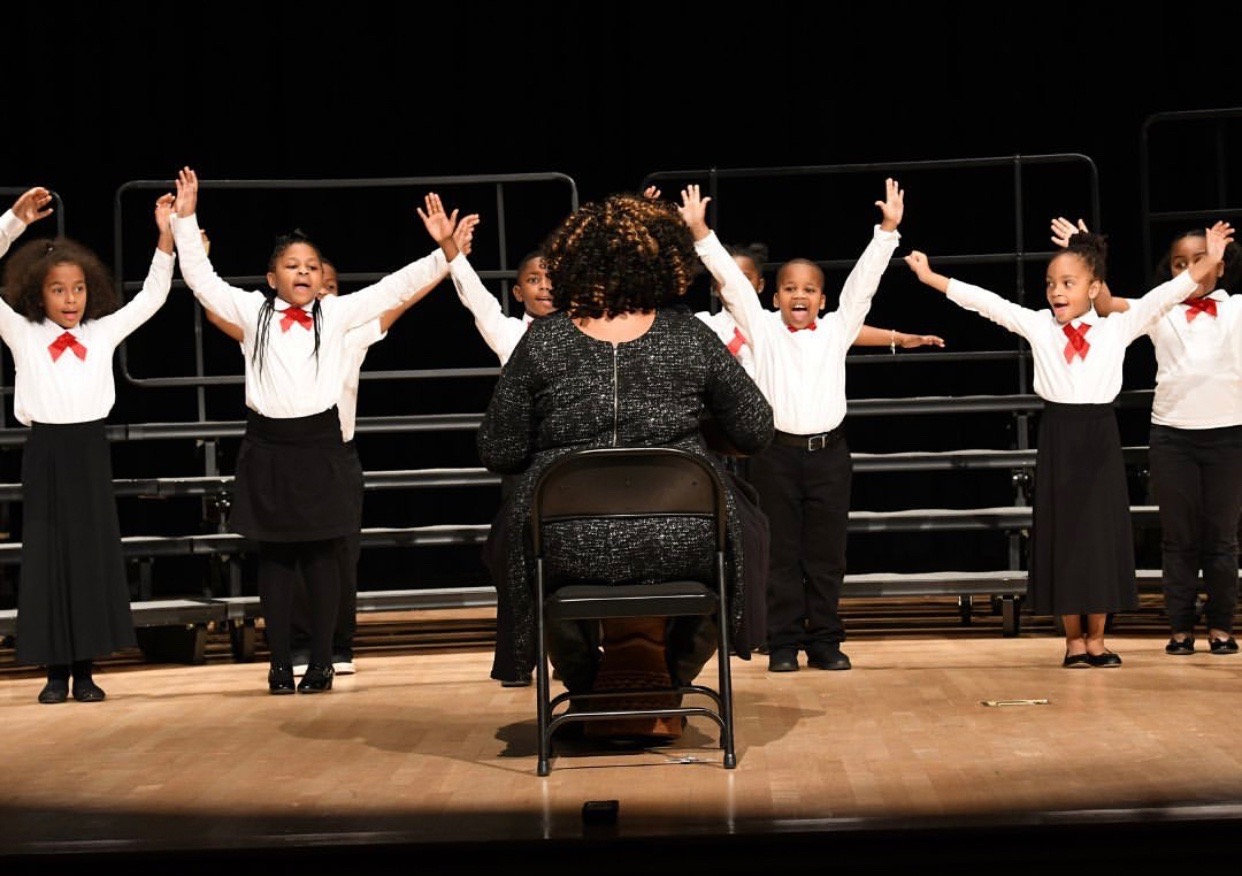
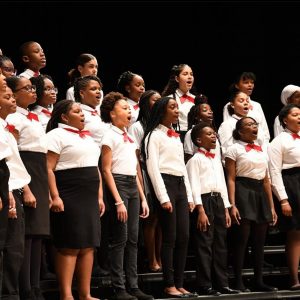
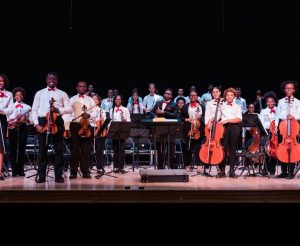
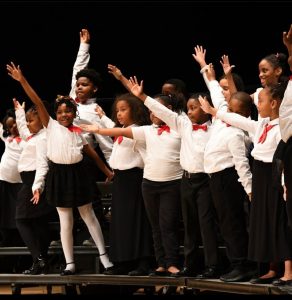
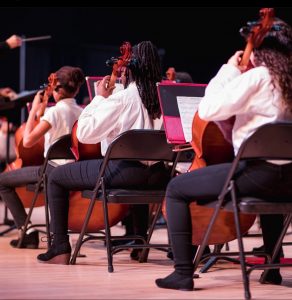
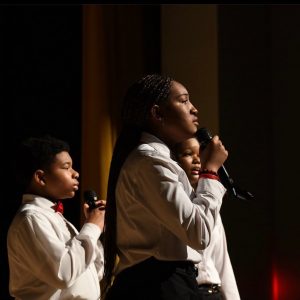
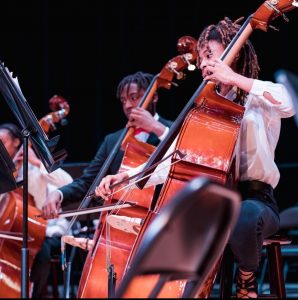


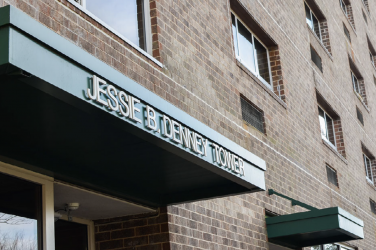


Show Comments (0)